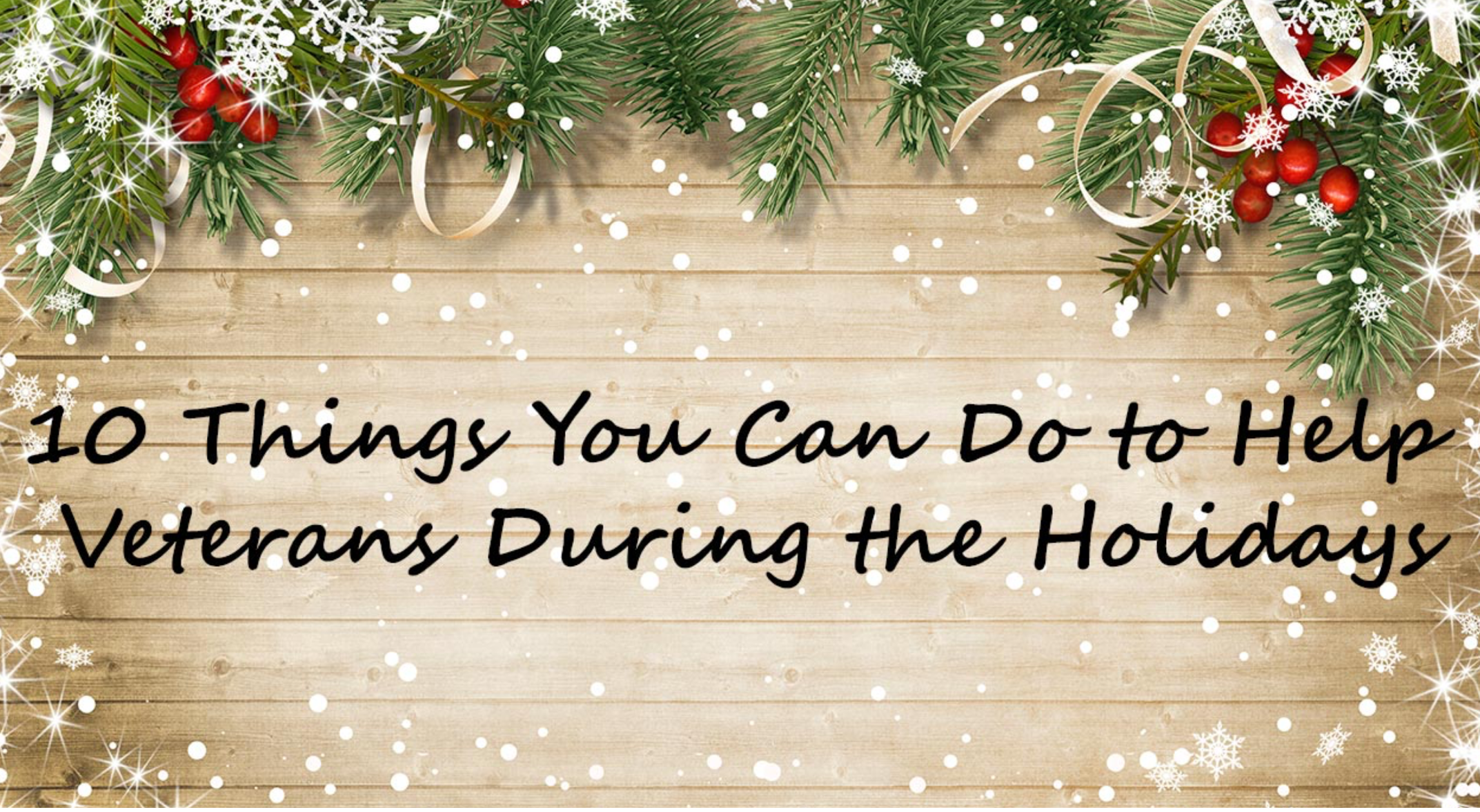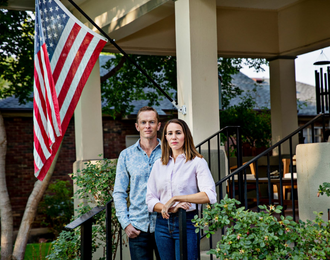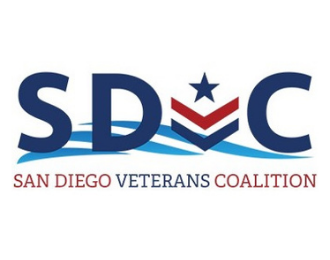10 Things You Can Do to Help Veterans During the Holidays

Military Benefits – Updated for December 2021
Author: MB Staff
Military veterans face challenges during the holidays. These challenges come in many forms. For some, it could be unemployment and homelessness. For others, it could be physical handicaps or relationships with others and themselves. Whether or not you have served or know someone who has, there are things you can do to help.
Giving can also come in many forms. You can donate items, money, or your skills and time. Every contribution counts. Even if it seems small, it could mean the world to one veteran and their family. What can you do this holiday season to support veterans?
- Adopt a Military Family
According to the Center for American Progress, more than one in five veteran families live pay check to pay check. That’s 3.9 million veterans surviving at 200% of or under the federal poverty level. That leaves very little money to buy gifts for children or enjoy the other holiday traditions many of us celebrate.
Organizations like Soldier’s Angels connect people with veteran families in need. You can adopt a family for the holidays. Once accepted as a sponsor, you will be given 48 hours to get in touch with your assigned family to find out what they need.
You can purchase a food gift card worth a minimum of $50 to $100, based on the number of people in the family. Sponsors purchase gifts for each child under age 18 that is living in the household and has not yet graduated high school.
You can also help a military family in your area by directing them to programs like Soldier’s Angels.
- Donate Your Frequent Flier Miles
Frequent flyer miles are a great way to help veterans when you don’t have time to volunteer. If you have miles, donate them to reunite veterans with their families after undergoing medical treatment at a VA hospital.
The Fisher House Foundation builds homes for military veterans and their families. The organization also accepts frequent flier donations through its Hero Miles program. The program provides round trip airfare for sick, injured, or wounded vets and their families to travel to and from medical facilities.
- Spend Time at Your Local VA Hospital
Many veterans spend time away from their loved ones while in VA hospitals over the holidays. This can be very difficult and lead to feelings of loneliness and depression. Even if you don’t have money to give, you can donate your time.
Visit your local VA hospital and spend time with vets. Being there and getting to know them can make a big difference in their outlook. Let them know that they are not alone nor forgotten. Contact your local VA hospital to find out if they allow volunteers to stop by and to ask about visiting hours during the holiday season.
- Ask Your Employer About Corporate Matching Gifts
If you plan to donate money to a veterans’ charity, really make it count by asking your employer if they do corporate matching gifts. Some businesses will match employee donations. You can double your donation without going over your holiday budget.
To do this, first contact your human resources, community relations, or employee benefits personnel to ask if your company offers this benefit. If so, find out if the charity you plan to give to is eligible. Your employer may also be able to direct you to a list of accepted charities if you haven’t found one yet.
- Become a Part of the Combined Federal Campaign
If you are a federal employee, then you may be eligible to donate through the Combined Federal Campaign (CFC). This workplace giving program is designed to support philanthropy. Employees can choose a charity from a catalogue of approved organizations. They can make a pledge in the form of a payroll deduction, one-time payment, or a recurring monthly pledge.
While the CFC is best known for monetary donations, employees can also participate by pledging volunteer hours to participating charities. Many military organizations are included, ranging from support for legal services and benefits to connecting pets with veterans. The list includes the USO, Tragedy Assistance Program for Survivors, the Fisher House Foundation, and Semper Fi Fund.
- Offer Support for Vets with PTSD
Veterans with PTSD can experience difficulties during the holidays. Some may have trouble discussing their needs and concerns. Be available and supportive, so they know that they have someone to turn to when they need help.
You can also research PTSD symptoms and treatments to understand what your loved one may experience. If someone close to you has PTSD, it can help to encourage them to speak with other veterans who have experienced trauma or a professional.
Holiday events can be stressful for vets with PTSD. Large crowds, feelings of loneliness, depression, hypervigilance, and a demanding schedule can have a negative impact. Be prepared to give your loved one breaks during the holidays and encourage them to seek help if you notice red flags like anger, excessive drinking, or suicidal thoughts.
- Donate Supplies for Convalescing Veterans
Donate warm blankets, socks, gloves, and other supplies to your local VA. These items can bring comfort to convalescing veterans. You can also donate MP3 players, DVDs, and more to provide entertainment options while they heal.
Make sure you speak with the VA hospital to ask for a list of acceptable donations. They can provide information on the most in-demand items and anything that they will not accept.
- Join a Local Stand Down for Homeless Vets
The Stand Down was used during the Vietnam War to provide a safe place for troops returning from combat. These secure base camps provided a place to relax and clean up with hot meals, hygiene products, and medical or dental care.
The same concept applies to the Stand Down for Homeless Vets program. The objective is to provide homeless veterans with a place to stand down for the night after surviving on the streets. They can obtain services and resources that can help them get a “hand up” and improve their quality of life.
Basic needs are covered, including hot food, clothing, and medical care. They can access benefit claims processing, legal assistance, job counseling, and childcare services. The National Coalition for Homeless Veterans provides a state-by-state list of Stand Down locations where you can donate money or supplies to support emergency shelters. Volunteers can help by providing their time or skills to serve as mentors, legal aids, or counselors.
- Sponsor a Toy Drive or Fundraiser
Many communities currently have veteran families in need. You can work locally by organizing a toy drive or fundraiser for a family or organization in your area. Provide food or holiday gifts to help make the season special for families of soldiers.
You can handle it on your own or join an organization like Operation Homefront. Their holiday toy drive includes multiple ways to contribute. Supporters can make tax-deductible donations or volunteer to collect and deliver toys.
- Support the Department of Veterans Affairs
The Department of Veterans Affairs handles a wide range of services that include working with patients, recreational activities, and more. You can contact your local office to ask about volunteer opportunities. This is a wonderful way to help veterans in your neighborhood.





